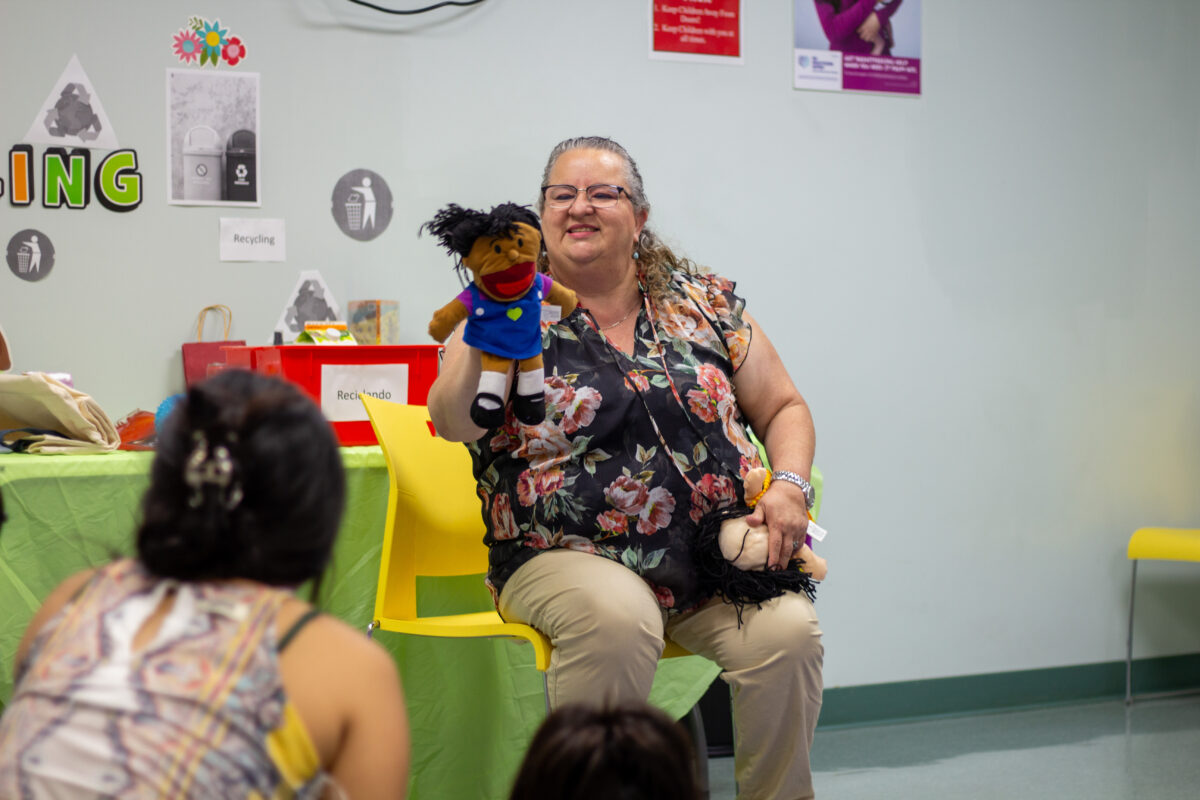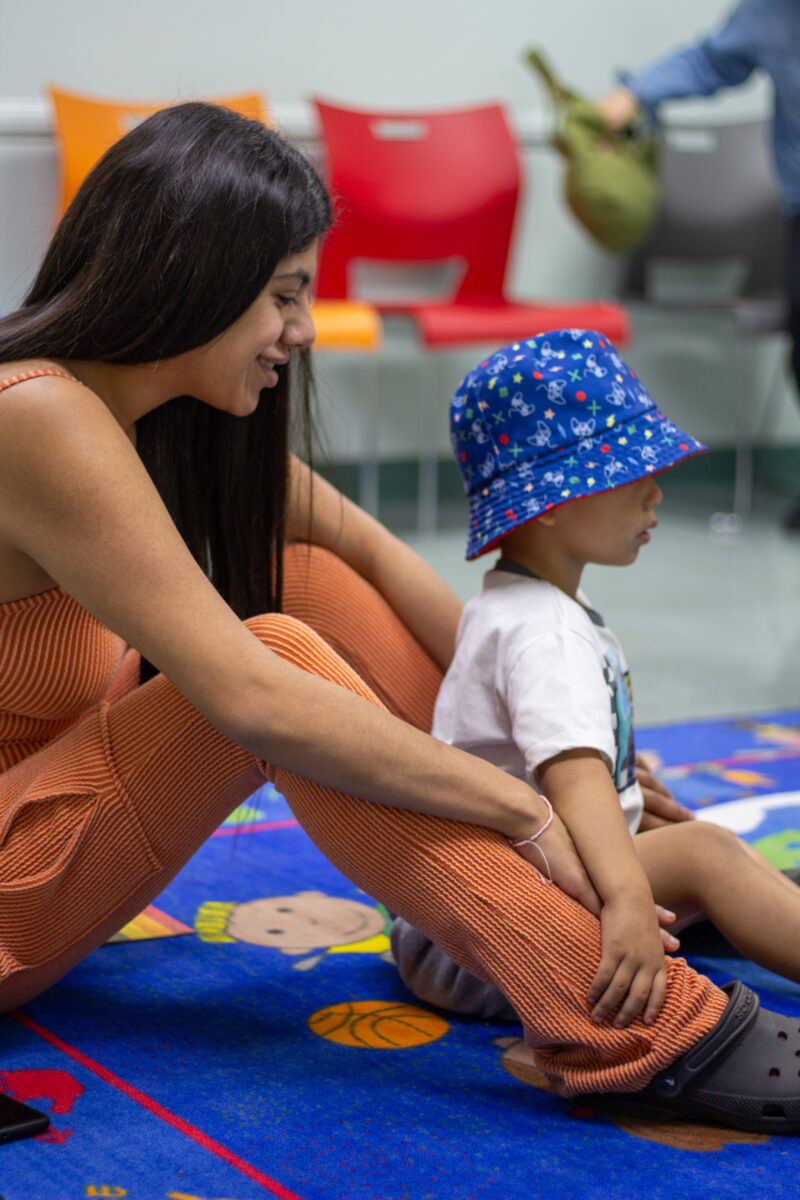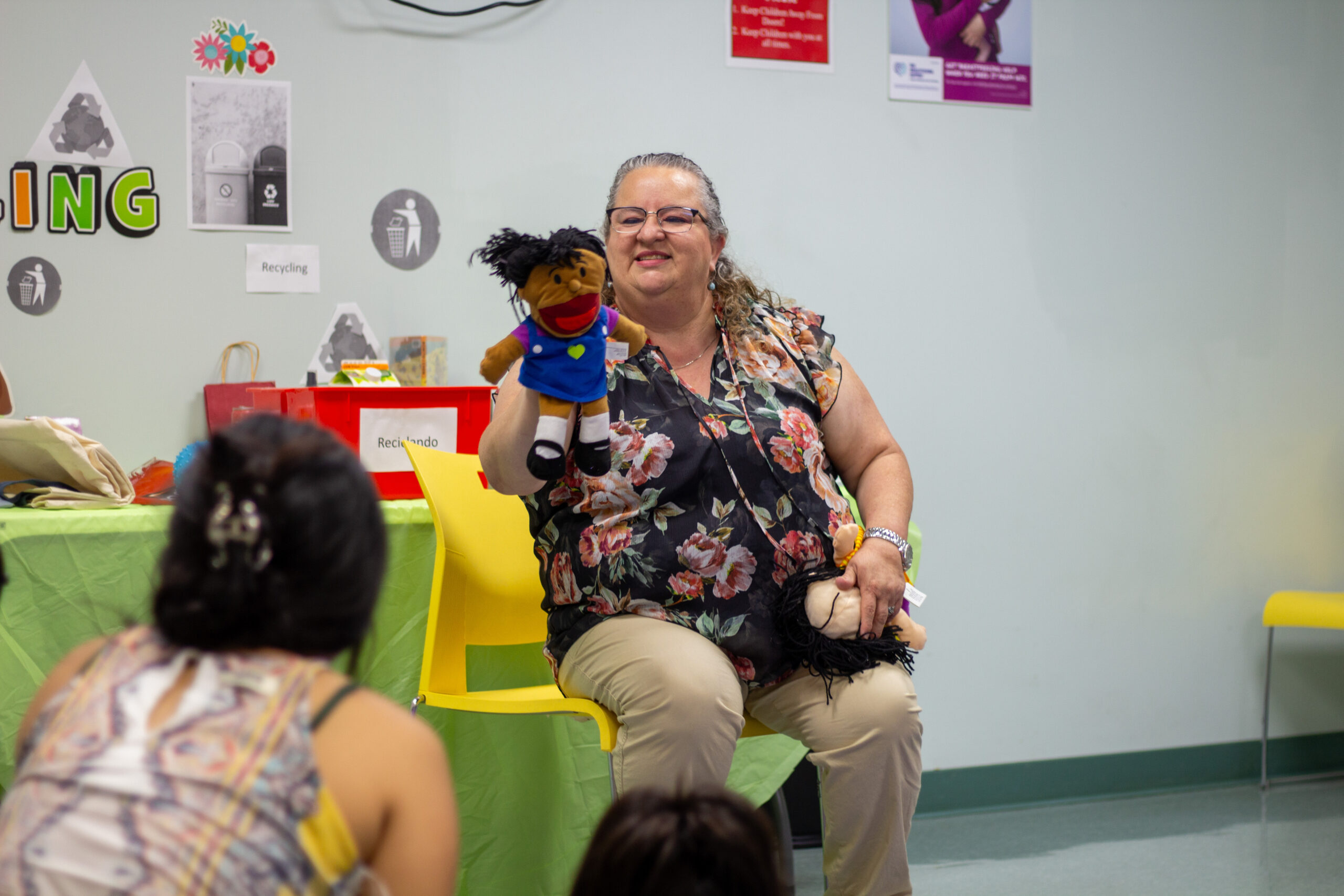Inside the Green Room at the Women, Infants and Children (WIC) Center located on Manchester Avenue in South Los Angeles is a quote surrounded by colorful images of books. “If you give kids a book, chances are they will want another,” welcomes all who enter, especially the parents and children who attend Story Time, a monthly community event for WIC participants.
But it is not just the engaging events that convince mothers to spend their free time at the local WIC office, it’s the comprehensive care they and their children receive to ensure healthy development. WIC, a federally funded program serving low-income women with children up to the age of five, offers healthy foods, breastfeeding support, nutrition education and referrals to other services.

“WIC helps families build strong foundations,” said Marisela Montoya, EdD, investigator at The Lundquist Institute for Biomedical Innovation at Harbor-UCLA Medical Center and Executive Director of The Lundquist WIC Program.
Since 2021, Montoya has overseen The Lundquist WIC Program – a component of the South Los Angeles Health Projects – which includes 10 physical sites across South Los Angeles and one virtual office. Over the last four years, the program has seen a steady increase in participation and currently serves over 64,000 participants a month.
Montoya described the program as a powerful preventive health tool, one that improves birth outcomes, enhances child development, and reduces long-term healthcare costs. “It also offers vital support during emergencies, ensuring access to food and services even in natural disasters like wildfires,” she added.
Aside from health services, WIC engages the community through educational events. During Story Time, WIC partners with a local librarian who reads to and interacts with the children in English and Spanish. Genesis Cervantes, a Los Angeles native, has been a WIC participant for three years but had never attended Story Time until recently.
Cervantes’ three-year-old son, Elijah, was quick to respond to the librarian during Story Time when she asked questions. He’d point to certain animals featured in books, calling them by name and describing their color with ease. “Elijah is very smart,” said Cervantes. “In the community we come from, there aren’t many opportunities or free resources that prepare our kids for school. That’s what I like about Story Time, it’s preparing him for school through reading and interacting with other kids,” Cervantes said.

Story Time focuses on literacy and language during a critical years of child development. According to Noelia Gonzalez-Salas, WIC Child Development Specialist, who’s worked for WIC in different roles for over 20 years, Story Time is about inspiring curiosity and making learning fun. It’s also an opportunity to reconnect with mothers and children and follow up with any health needs.
“In addition to our educational events, we have Breastfeeding Support Groups,” said Brittany Sindicich, WIC Project Coordinator of the Breastfeeding Unit and Child Development Services. “Breastfeeding can present challenges for some mothers, and we’re here to offer personalized consultations to support them. Our support groups create a welcoming space where participants can connect emotionally and mentally with others—which is such an important part of the breastfeeding journey,” Sindicich added.
When discussing how WIC has made an impact in the community beyond its traditional services, Sindicich explained that WIC values its partnerships and takes full advantage of additional resources they can provide to their participants whether it be books, diapers, backpacks, toys, etc.
Montoya agreed and said that during challenging times, she is proud that the program remains adaptable, compassionate, and community focused. Whether navigating a pandemic or responding to natural disasters, the team consistently finds innovative ways to meet the evolving needs of the families they serve.
“Our work goes beyond service delivery; we build trust, empower families, and advocate for equity in public health. Our commitment to equity, collaboration, and service continuity reflects our work’s heart,” said Montoya.
